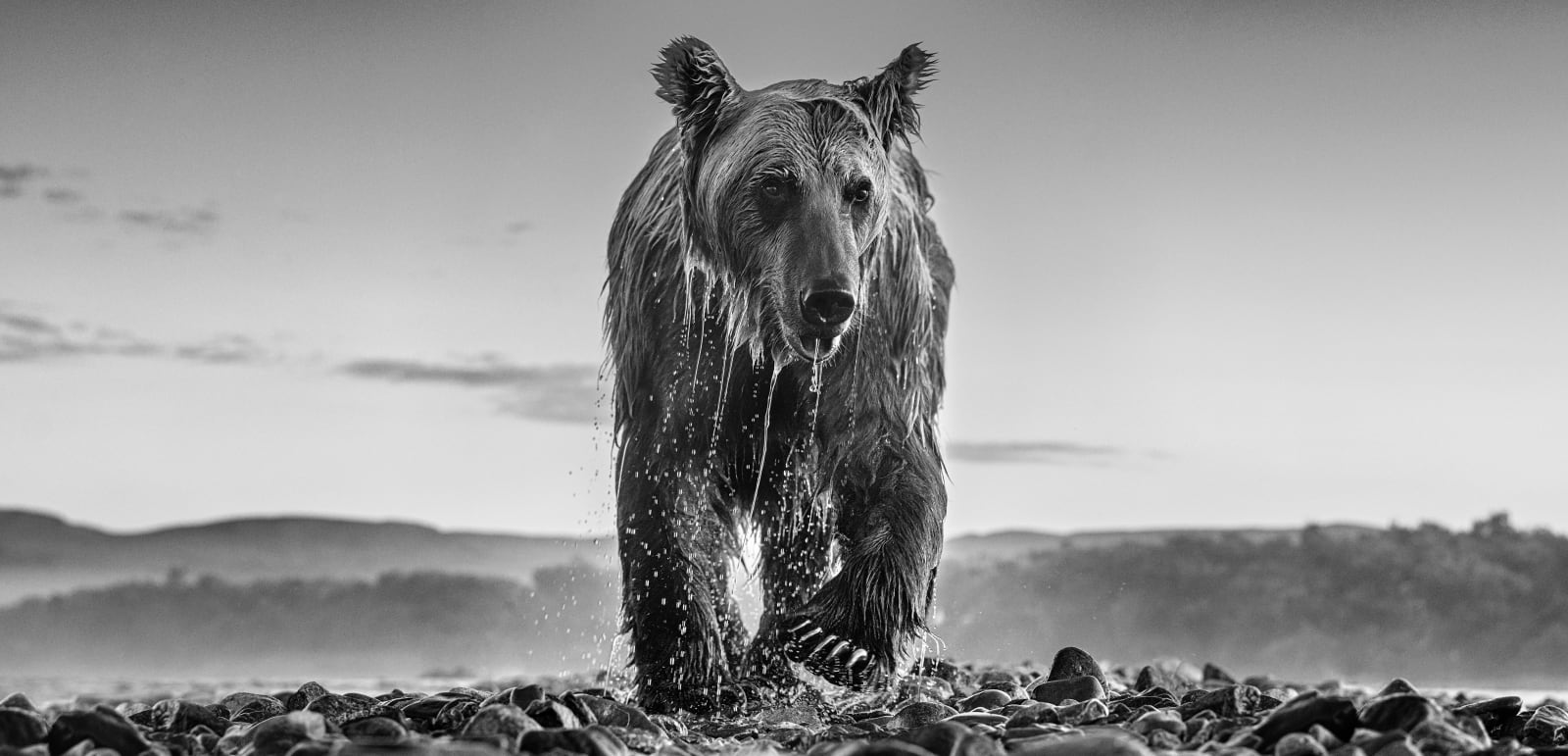
Bear Island "Bear Series", 2023
"On the final day of our annual trip, we finally had our moment in Alaska. Filming bears in this final frontier is a challenge that we take up almost every year in late July. We do this knowing that so many variables will come into play and that the key is always to adapt to what we find and not be prescriptive. No location demands a more fluid schedule than Alaska.
The timing of the sockeye salmon run, the depth of the rivers and the behavioural pattern of the big bears are always leading factors when we iterate our plans and then iterate again.
But during our week in Katmai, we had a new factor - blue skies and hot bright sunshine - not the weather associated with this part of the world. We recognised that this would limit our filming hours to the early morning but being able to land our float plane at dawn, high in Katmai was not a given. In these weather conditions mist often forms on the lake where we land, thus making access to the river and the salmon run impossible.
On the first two days of our week we were too early as the bears were late. Then on the first big day, the mist was thick and we were not able to land. The next day we got in and learned from watching the bear activity but didn’t capture anything of note. On the final day, we were all set and had again refined our plan, but all our pilot’s vast experience was called upon to land the plane through the mist at 6 am.
The activity on the river, as the soft early morning light broke through the mist, was as spectacular as anything I have been lucky enough to witness in recent years. There was no point counting the bears as we would lose that count.
Our slightly contentious view, after 10 years coming up here, is that the best lens with which to film bears is a standard lens. The camera kind of sees what we see and this means that the magnification of telephotos is not available. The vast majority of good bear images have been taken with telephoto lenses and we recognise the merits of shooting from a distance but I prefer my camera to be close.
Standard lenses tell a wider story and that is always our goal. This requires the use of remote controls and a great a deal of predicative thinking. It is not exactly a 'Hail Mary' approach, but it is low percentage; their default result is to fail.
That’s why this moment, at around 6.45 am that morning, was so welcome. We could then go home and have a bath." - David Yarrow